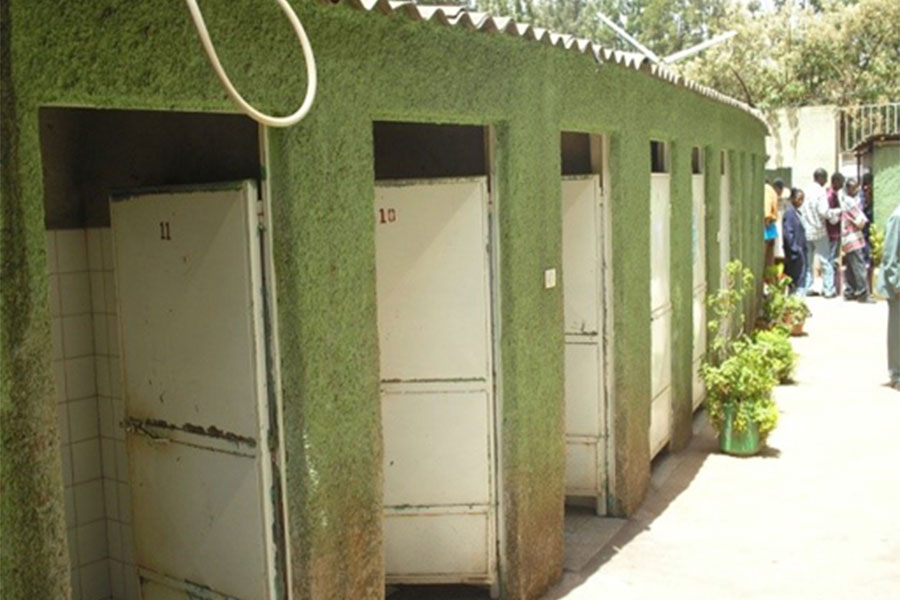
Commentaries | Mar 07,2020
On a splendid afternoon, I found myself reclining on the veranda of the exquisite Tukul Restaurant nestled within the Ghion Hotel. Towering, timeless giant trees that stood sentinel, imparting a fortress-like ambience that shielded the gaze from anything beyond the verdant gardens, framed the vantage point.
My tranquil contemplation was abruptly interrupted by an explosive sound, swiftly followed by an object hurtling through the air at lightning speed, momentarily unnerving me. The birds scattered in the wake of this unexpected event still shrouded in mystery. It was then that fellow patrons of the veranda came to my aid. They revealed that the explosive sound emanated from the cracking of a jacaranda tree seed pod, propelling its seed into the air.
I marvelled at the rarity of witnessing such a natural phenomenon firsthand, an experience both unexpected and pleasantly enchanting. With its wonders and inexplicable riddles, nature is an inexhaustible source and a lifetime seems inadequate to explore them all.
The Hotel's trees are ancient and diverse, hosting numerous indigenous species. The lush vegetation, with towering trees and meticulously maintained lawns, transforms the place into a haven for nature lovers, a botanical open lab. Strolling in the evening's cool air, the old cobblestone slabs and dry leaves crunching beneath my feet create an ambience that feels like a scene from a dream. While not formally designated as a city park, Ghion Hotel rivals any other frequented by joggers, trekkers, and leisurely strollers. It puzzles me why more city residents do not embrace this paradise in the heart of the city.
The legacy of tree conservation in Addis Abeba extends back decades, with historical figures like poet laureate Tsegaye Gebremedhin fighting tirelessly to save iconic trees from being felled.
One such example is the majestic acacia tree standing tall in front of the National Theatre, a testament to the unwavering fight for cultural heritage and environmental protection. Another magnificent tree at the Italian Cultural Institute, estimated to be almost a century old, has intertwined its roots with the earth, creating a natural platform for other plants to flourish. This display of self-sufficiency serves as a powerful reminder of nature's inherent ability to thrive when left undisturbed.
Addis Abeba is blessed with pockets of green scattered throughout the city, each one a visual feast for the eyes. As I write this, I find myself nestled in a small garden tucked between the main building of the Zobras Olympiakos Greek Club and its tennis court. This intimate space, shaded by towering juniper trees, exudes an air of serenity.
I remember from my time at the 4 Kilo Science faculty campus that a freshman asked the meaning of unpronounceable scientific names pegged to the trees. His friend who had no idea what the inscriptions meant gave a witty reply “No one is allowed to pee on the trees” which made us all burst into laughter. Like that of countless other green pockets within the city – the sprawling campuses of Addis Abeba University campuses adorned with decades-old trees, the iconic palm tree-lined promenades around the Wabi Shebelle and Ethiopia hotels – serve as a constant reminder of the importance of preserving these urban sanctuaries.
On the contrary, a 2013 study by the UK Royal Society of Biology examining the Chernobyl Exclusion Zone paints a poignant picture. This area, ravaged by a nuclear disaster in 1986, was stripped of its human population, allowing nature to reclaim its dominion. In the following decades, despite the lingering presence of radiation, the region witnessed a remarkable resurgence of plant and animal life.
This contrast between the destructive potential of human intervention and the restorative power of nature compels us to reflect on our relationship with the environment.
Commending current efforts in afforestation and the Green Legacy initiative, it is heartening to witness the transformation of the cityscape with the creation of expansive parks like Entoto and Friendship. As the city evolves, it is crucial to plant and preserve indigenous species that have thrived through millennia of evolution and adaptation to the local environment.
However, it is crucial to prioritise the cultivation of indigenous species over aesthetically pleasing, yet ecologically disruptive, alien plants. The recent felling of juniper trees along Bole Road serves as a reminder of the need for responsible environmental practices. These trees, with their long-established symbiotic relationship with the local ecosystem and decades of growth, cannot be easily replaced. They were more than just aesthetic additions – they were seasoned veterans, embodying the city's history and holding the stories of countless encounters within their weathered bark.
Diplomatic compounds with their verdant landscapes serve as hidden oases within the city. The well-preserved ecosystem in embassies such as Vatican and French, with towering trees and thoughtfully designed lighting that respects both nature and human comfort, is a testament to the possibility of creating harmonious spaces for all.
In the era of environmental concerns and diminishing soil fertility, the imperative of planting and preserving trees cannot be overstated. While sustainability is a cornerstone of policy documents, the sociocultural value of maintaining forests as havens of tranquillity is equally vital. Allowing nature to flourish without undue interference is a proven path to harmony. The consequences of tampering with nature are depicted in Michael Jackson's "Earth Song," serving as a poignant reminder of our responsibility to nurture and protect the planet.
PUBLISHED ON
Mar 09,2024 [ VOL
24 , NO
1245]


Commentaries | Mar 07,2020

Editorial | Jul 18,2021

Sunday with Eden | Jan 03,2021

Radar | Aug 16,2020

Sunday with Eden | Nov 16,2024

Viewpoints | Nov 12,2022

Money Market Watch | Aug 18,2024

View From Arada | Sep 30,2023

Commentaries | Oct 08,2022

Sunday with Eden | May 25,2024

Dec 22 , 2024 . By TIZITA SHEWAFERAW
Charged with transforming colossal state-owned enterprises into modern and competitiv...

Aug 18 , 2024 . By AKSAH ITALO
Although predictable Yonas Zerihun's job in the ride-hailing service is not immune to...

Jul 28 , 2024 . By TIZITA SHEWAFERAW
Unhabitual, perhaps too many, Samuel Gebreyohannes, 38, used to occasionally enjoy a couple of beers at breakfast. However, he recently swit...

Jul 13 , 2024 . By AKSAH ITALO
Investors who rely on tractors, trucks, and field vehicles for commuting, transporting commodities, and f...

Jul 12 , 2025
Political leaders and their policy advisors often promise great leaps forward, yet th...

Jul 5 , 2025
Six years ago, Ethiopia was the darling of international liberal commentators. A year...

Jun 28 , 2025
Meseret Damtie, the assertive auditor general, has never been shy about naming names...

Jun 21 , 2025
A well-worn adage says, “Budget is not destiny, but it is direction.” Examining t...